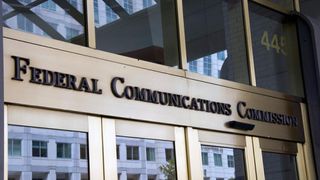FCC: Dish, DEs Get to Cure AWS-3 Issues

The FCC is giving Dish and the AWS-3 wireless spectrum auction participants over which the FCC concluded the satellite operator had de facto control a chance to renegotiate their relationship so that those entities, Northstar Wireless and SNR Wireless LicenseCo, can qualify for the billions in bidding credits a previous FCC denied them.
In 2015, the FCC denied designated entity (DE) bidding credits to the companies—some $3.3 billion worth. The FCC concluded that Dish's majority financial interest in the companies were controlling interests that should be attributable to Dish, which meant the companies were ineligible for the $1.9 billion (Northstar) and $1.4 billion (SNR Wireless) bidding credits they had applied for.
The credits would have lowered their bid to $10 billion, after which the companies said they could not pay for all of the licenses, paying full price for some and turning back others, which the FCC allowed them to do. Dish had put up most of the money for the two to bid the $10 billion.
Related: T-Mobile Says FCC Must Penalize Dish, DE's
A federal court in August 2017 upheld the finding that Dish exercised de facto control, but also held that the FCC, under then chairman Tom Wheeler, failed to notify the companies that if the FCC found they did not qualify for the credits, worth billions of dollars, the FCC would not give them a chance to cure that problem. The court remanded the eligibility decision back to the FCC to resolve that, including by giving the parrties an opportunity to cure that Dish de facto control.
The Pai FCC is doing just that.
In an order on remand released Jan. 24, the Wireless Telecommunications Bureau is giving the parties 90 days to renegotiate with Dish and other parties and file the necessary documents to show they now qualify for the credit. If it takes longer than that, the FCC will provide an additional 45 days on request.
Related: FCC Releases Text of Dish DE Decision
The Wheeler FCC had argued against providing a cure, saying it would disincentivize compliance since companies could just seek the credit and haggle post-auction. The court disagreed, saying "nothing in our decision requires the FCC to permit a cure. That choice lies with the FCC. But if the very opportunity to seek one is to be foreclosed, applicants must have clear, advance notice to that effect."
Broadcasting & Cable Newsletter
The smarter way to stay on top of broadcasting and cable industry. Sign up below
Contributing editor John Eggerton has been an editor and/or writer on media regulation, legislation and policy for over four decades, including covering the FCC, FTC, Congress, the major media trade associations, and the federal courts. In addition to Multichannel News and Broadcasting + Cable, his work has appeared in Radio World, TV Technology, TV Fax, This Week in Consumer Electronics, Variety and the Encyclopedia Britannica.

